Christmas party season: Why my anxiety gets worse after drinking
- Published
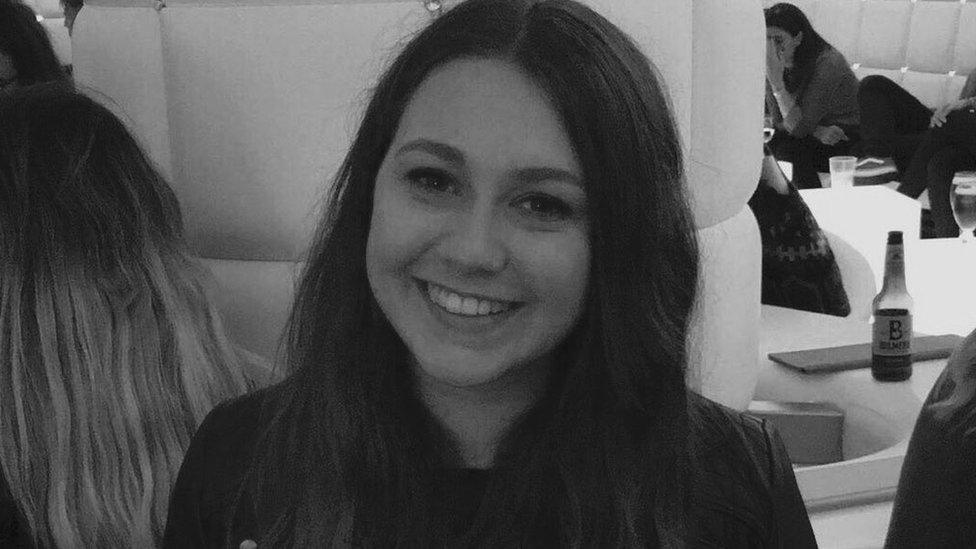
"I don't feel capable of fighting against it."
That's how Lauren Goodfellow, 21, describes a certain type of anxiety she gets.
Triggered by alcohol, it's best known as hangover anxiety or "beer fear".
It takes the form of a cycle of irrational thoughts, negative thinking and intense regret.
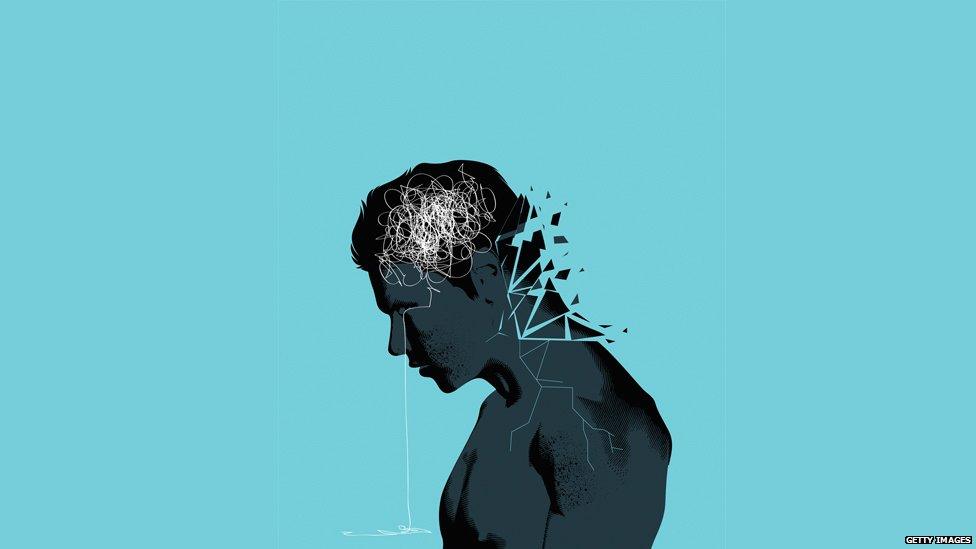
Lauren describes the anxiety as a heavy feeling on her chest
Feeding into this is guilt of how you may have acted when drunk - and fear that you'll be reminded of something you did which you'd rather forget.
It's real, and with Christmas party season about to get under way, it might be something you recognise the day after drinking heavily.
"I suffer from general anxiety anyway," says Lauren, who's a student at the University of Manchester.
"But it's a lot worse when I've had a drink."
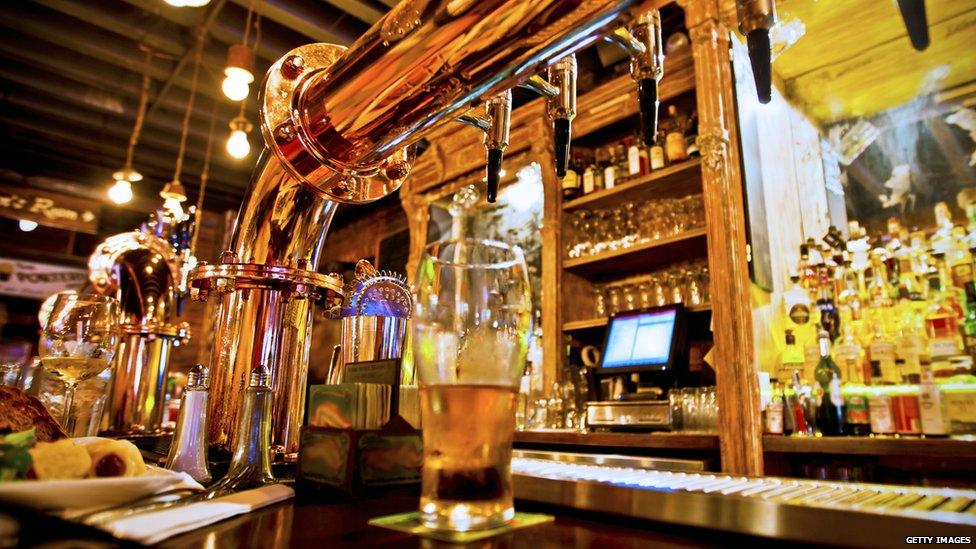
The government advises men and women should have no more than 14 units a week (about six pints of beer or seven glasses of wine)
While Lauren normally deals with her anxiety through mindfulness techniques and meditation, that becomes a lot more difficult after drinking alcohol.
"It gives way to intrusive thoughts and negative thinking patterns.
"I don't feel capable of fighting against it or choosing to think in a positive way because I'm already feeling run down and lethargic."
Anyone can experience hangover-induced anxiety.
But for Lauren, "it can start off a bad period - anything from a couple of days to a week," she says, which is harder to overcome.
And it's important to distinguish the trigger, because while some people with anxiety may drink heavily as a form of self-medication, others - like Lauren - have anxiety directly caused by the alcohol.
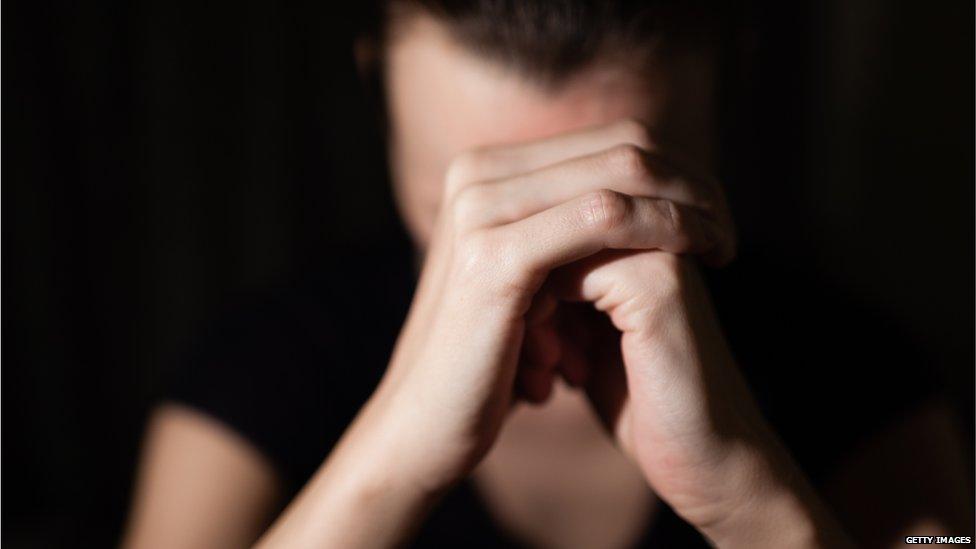
Doctors say the only way to avoid hangover anxiety is to cut down the amount you drink in one night - or don't drink at all
It's not an addiction. It's a 21-year-old doing what many British students do and enjoying a night out - but then Lauren says her mental health will suffer the next day.
For her, the only solution is "just not drinking".
GP Dr Sarah Jarvis, who also acts as a medical advisor for Drinkaware, agrees.
"Very sadly, that is the only way you can deal with it," she says.
While people may find it difficult to sympathise with someone who chooses to get drunk, Dr Jarvis confirms that hangover anxiety "is a real thing".
She says: "Anybody can feel anxious in association with a hangover because that's part of what alcohol does to your brain."
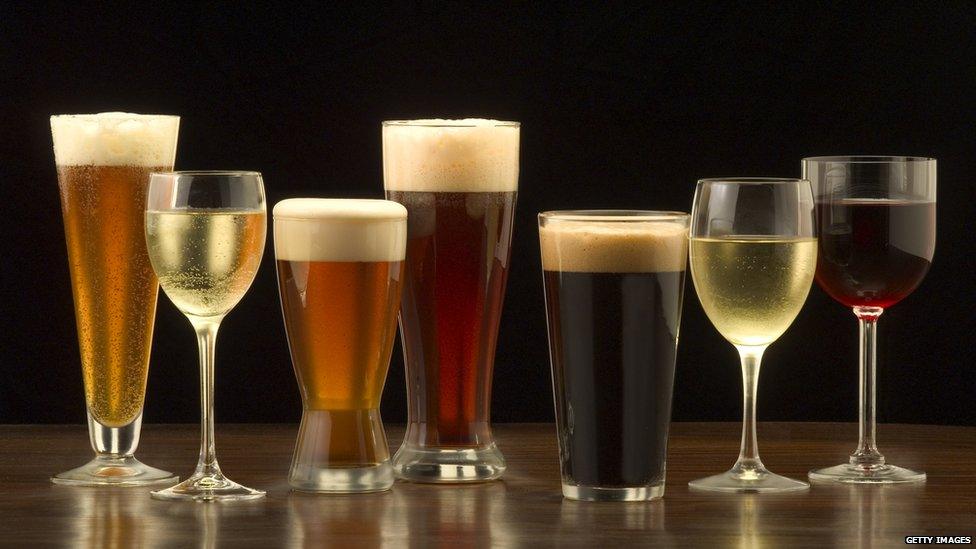
Darker drinks, like red wine or whisky, can cause worse hangovers
Although alcohol's depressive effect eventually makes you sleepy, the quality of sleep you have is poor.
"Anxiety is much more common if you haven't slept well," says Dr Jarvis.
Then there's the general hangover effect on your body - which comes from dehydration, fatigue and the sudden drop in the pleasure hormone dopamine in your brain.
"If you are physically unwell, then you are more likely to feel anxious," she says.
Watch Newsbeat's latest documentary about mental health, My Mind and Me, on BBC iPlayer now.
For more advice on anxiety and drinking, go to BBC Advice.
Find us on Instagram at BBCNewsbeat, external and follow us on Snapchat, search for bbc_newsbeat, external